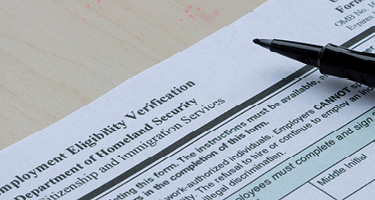Robert Haws has had his finger on the pulse of employment laws and litigation trends for decades. He joined Gust Rosenfeld P.L.C. in 2001, having already established himself as one of Arizona’s top defense counsel to organizations of all sizes. Rob now serves as Chair of Gust Rosenfeld’s Employment and Education Law Practice Groups, advising employers on the full range of challenges and opportunities presented by employees. In the courtroom, he has obtained numerous case dismissals, awards of summary judgment and unanimous defense verdicts in high-profile cases.
Haws has been recognized by Best Lawyers® annually since 2008 in both Employment and Education Law and the publication named him “Lawyer of the Year” for Education Law in Phoenix in 2022 and 2019. Under Haws’ leadership, Gust Rosenfeld’s Education Law practice is one of the firm’s nine groups ranked Tier 1 in Phoenix by Best Law Firms® 2024.
He spoke about how his practices’ two strategic areas – counseling and litigation – help clients navigate the increasingly complex challenges that unhappy or unproductive employees present.
An Interview with Robert D. Hawes
Robert, tell us about the types of clients the Employment and Education practices represent.
We represent a broad mix of employers – from small businesses to multinational companies in the private sector as well as schools and community colleges across Arizona. We also represent executives when they are named in a lawsuit along with their company.
How is the practice structured?
We have ten lawyers devoted to our employment and education groups, along with several paralegals and support staff. The Gust Rosenfeld team is spread between our Phoenix, Tucson and Flagstaff offices.
We focus on two main areas – counseling and litigation. They are interconnected and I’m happy to provide a high-level overview.
Let’s start with counseling.
Every employer is in the people business – and people can be challenging. Clients do not call to introduce us to their employee of the month or tell us everyone is happy and getting along.
The counseling component is how we help clients deal with difficult employees, unusual situations and keep them up to speed on new state and federal requirements.
Government oversight of the workplace has become increasingly complicated. Access to experienced, capable employment counsel is more valuable than ever as employers deal with hot topics such as hybrid work challenges, DEI (diversity, equity and inclusion) concepts, and social trends that do not stop at the “factory gate,” including parental leave, new theories of discrimination and misuse of social media.
Next is litigation.
Oftentimes, the prologue to a lawsuit is a government agency knocking on the business’ door after receiving a complaint from a current or former disgruntled employee.
Once this happens, we interface with the agency and demonstrate the client’s compliance and refute the allegations the agency received. We explain to our clients the strengths and possible areas of concern with their case. This includes the best, worst and most likely outcome scenarios, resolution options, pragmatic timelines and estimated budgets.
When a lawsuit is filed, the stakes become higher. Our approach is to investigate the case thoroughly – no one likes courtroom surprises – and be fully prepared so our position can be explained in a clear, concise and convincing manner.
Some free advice I can offer employers is to avoid sugar-coated evaluations and train supervisors how to hold people accountable through honest, task-focused communication.
How we work has changed, with physical locations no longer a requirement thanks to remote and hybrid capabilities. How has that impacted the employment law landscape?
The changing nature of the workplace has caused much reflection on how employers attract, train and supervise talent. Remote and hybrid workplaces also challenge how employers build a culture within their organizations. Employees who are not properly trained, supervised or are unhappy pose the greatest legal risks to their employers.
Though employees are returning to the workplace more regularly, navigating the remote and hybrid work environments remain top of mind in our area. Maintaining a consistent culture across in-person, remote or hybrid settings presents unique challenges because there are now more ways for employees to feel disconnected or mistreated.
You have successfully defended school districts and municipalities in critical matters involving discrimination and terminations. How do you and the Gust Rosenfeld team approach defending these entities as opposed to privately held ones?
While there are many similarities, representing a school district or other government employer adds some complicating layers. For example, Arizona’s open meeting and public record laws apply to government employers, which makes it more difficult to defend them successfully than a private sector employer.
Taxpayers can bring phones to record board of education meetings, for example, and have every right to do so. A plaintiff who sues a government employer has much broader and less filtered access to information than a plaintiff who sues a private business.
How long can employment matters such as discrimination or misconduct cases take?
An EEOC investigation can last 18 to 24 months, and a discrimination lawsuit cannot be filed until that process is completed. Once filed, a lawsuit can easily take another two years before a trial date is set. By the time trial begins, nearly four years will likely have passed. Memories will have faded, and the employer’s witnesses have frequently moved on to other positions.
On the few occasions when a client’s standards of how they want their employees treated were not met, we help them resolve the concern on the most favorable terms possible so they can move forward. Reaching a favorable resolution can be a long journey. Gust Rosenfeld takes special pride in helping businesses and their leadership prevail when they have been wrongfully accused of treating someone unfairly.

































